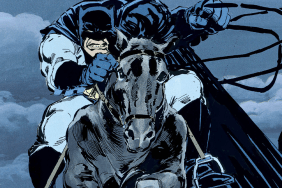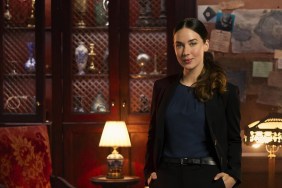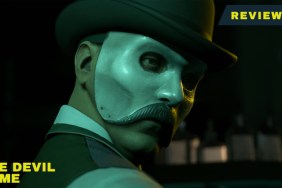Mel Gibson as Thomas Craven
Ray Winstone as Darius Jedburgh
Danny Huston as Jack Bennett
Bojana Novakovic as Emma Craven
Shawn Roberts as Burnham
David Aaron Baker as Millroy
Jay O. Sanders as Whitehouse
Denis O’Hare as Moore
Damian Young as Senator Jim Pine
Caterina Scorsone as Melissa
Frank Grillo as Agent One
Wayne Duvall as Chief of Police
Gbenga Akinnagbe as Detective Darcy Jones
Gabrielle Popa as Young Emma
Paul Sparks as Northampton Police Detective
Directed by Martin Campbell
Summary:
“Edge of Darkness” is a top-notch thriller that will keep you on edge trying to figure out what will happen next. It’s a well-crafted addition to a genre that has made a refreshing and welcome comeback in recent years.
Story:
After seeing his daughter Emma shot down brutally in front of him, Boston police detective and widower Thomas Craven (Mel Gibson) sets out to find those responsible and make them pay. Instead, he gets caught up in a web of intrigue involving a powerful corporation and a government cover-up led by their shadowy operative Darius Jedburgh (Ray Winstone).
Analysis:
The political suspense thriller genre had a fine resurrection last year, even though underrated films like “The International” and “Law Abiding Citizen” were mostly overshadowed by the abundance of high profile science fiction movies. It’s refreshing to see the ’70s tradition of exploring political and corporate conspiracies has been maintained in a movie that camouflages itself as a straightforward revenge thriller.
Based on the BBC mini-series of the same name, “Edge of Darkness” is very much the type of movie you don’t want to know too much about in terms of plot, in order to allow the surprise twists to play themselves out as you watch. Even so, you might already know the general plot involves Mel Gibson as a police detective trying to avenge the death of his daughter Emma, and even knowing this might not prepare you for the brutal way she’s murdered in the first ten minutes of the movie. Thinking the killer was aiming for him, Craven’s guilt and grief drive him to investigate the case himself, despite it obviously being a huge conflict of interest.
This really is the perfect comeback role for Mel, one that harks back to some of his most memorable roles, but also allowing him to stretch as an actor, returning after eight years with a new perspective and maturity towards what his job as actor entails. There’s little question that when it comes to carrying a movie as a leading man, Gibson is still one of the best, and while his acting starts off shaky, Gibson eventually finds his legs with the character, delivering a heavy Boston accent with the type of nasally voice we might normally expect from Dustin Hoffman. Not that Craven is particularly awkward or shy, because when it comes time to meting out justice and roughing up those who stand in his way, he is surprisingly brutal and vicious.
As the story unfolds, Craven confronts those who were acquainted with Emma and might know what she was involved in that led to her death, including a paranoid boyfriend who realizes he might be next just for knowing too much. The only person Craven encounters who doesn’t seem to be flustered by the situation is Ray Winstone’s Darius Jedburgh, one of the film’s biggest enigmas and a character just as entertaining to watch as Craven. For much of the movie, it’s not quite clear which side he’s playing; we get the impression he’s not necessarily one of the good guys, but his conscience has clearly kicked in from seeing Craven’s guilt over how his daughter died.
Like some of the better recent Boston-based crime movies–Clint Eastwood’s “Mystic River” and Ben Affleck’s “Gone Baby Gone,” both based on Dennis Lehane novels, come to mind–much of why the movie works so well is that the filmmakers have embraced Craven’s environment and done a good job establishing his place as someone known and respected on the police force. Much of this attention to detail can be attributed to William (“The Departed”) Monahan’s sharp script, which is thoroughly engaging.
The only frustrating aspect of the movie may be how long it takes before you start catching on to what exactly Craven is dealing with; without saying too much, some of it feels quite dated as much as they tried to update it to current times. Much of this comes to light as Craven somehow talks his way into meetings with high-powered individuals like the dodgy CEO of the corporation where Emma worked, played with suitable sleaze by Danny Huston, and even meeting with a State Senator who is involved with them.
Director Martin Campbell, who also directed the mini-series, has outdone himself with the movie’s tone and look, creating a clean, modern looking film that retains the shadowy look of classic noir and the grittiness of the best ’70s conspiracy thrillers. It’s a fine follow-up to “Casino Royale” that allows him to flex his action muscles on a smaller scale, but tempering the violence with surprising amounts of heart. For such a manly movie–Craven’s daughter Emma is one of the few women–the film is surprisingly emotional, the quieter conversational moments between Gibson and Winstone bringing a somber depth of tone to their characters and the overall story. This is clearly not your typical action-thriller, and the mix of action and exposition masterfully handled to keep the viewer riveted to Craven’s every move; another brilliant score by Howard Shore certainly helps greatly.










